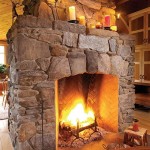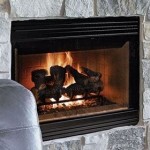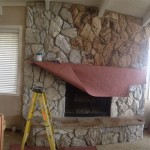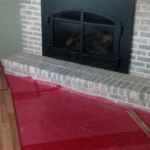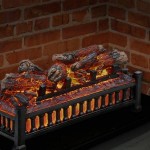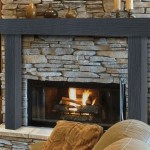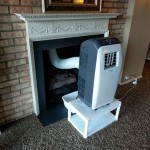Should I Close The Flue On My Gas Fireplace?
Gas fireplaces offer a convenient and efficient way to add warmth and ambiance to your home. However, one common question that arises is whether or not to close the flue when the fireplace is not in use. Understanding the purpose of the flue and the consequences of closing it can help you make an informed decision that ensures safety and efficiency.
The flue, or chimney, is a crucial component of a gas fireplace. Its primary function is to vent combustion gases, such as carbon monoxide and nitrogen dioxide, safely outside the home. When the fireplace is operating, the flue must be open to allow these gases to escape. However, when the fireplace is turned off, closing the flue can provide certain benefits and potential drawbacks.
Benefits of Closing the Flue:
- Energy Conservation: Closing the flue prevents warm air from escaping up the chimney, which can help reduce heat loss and improve energy efficiency.
- Reduced Moisture: An open flue can draw in outside air, which may carry moisture. Closing the flue can help prevent moisture from entering the home, reducing the risk of condensation and potential mold growth.
- Improved Air Quality: When the fireplace is not in use, closing the flue can prevent outdoor pollutants, such as smoke or pollen, from entering the home.
Drawbacks of Closing the Flue:
- Safety Hazard: If the flue is closed while the fireplace is operating, combustion gases can build up inside the home, posing a safety hazard. Carbon monoxide is a particularly dangerous gas that can cause health problems and even death if inhaled in high concentrations.
- Reduced Ventilation: Closing the flue can reduce ventilation in the home, which can affect indoor air quality. Proper ventilation is essential for removing stale air and bringing in fresh air.
- Increased Risk of Condensation: While closing the flue can reduce moisture in some cases, it can also contribute to condensation on the inside of the flue pipe, especially in humid environments.
Conclusion:
The decision of whether or not to close the flue on your gas fireplace depends on several factors, including safety, energy efficiency, and indoor air quality. If safety is your primary concern, it is crucial to keep the flue open when the fireplace is in use. However, if the fireplace is not in use, closing the flue can provide certain benefits, such as energy conservation and reduced moisture. It is important to weigh the potential benefits and drawbacks carefully and ensure that the flue is properly maintained and inspected regularly to prevent any safety hazards or other issues.

Costly Reasons Why You Should Close Your Damper In The Summer

How To Close A Fireplace For Spring Doctor Flue Mi Oh

How To Close A Fireplace For Spring Doctor Flue Mi Oh

Vented Vs B Vent Direct Free Dixie S

If You Have A Gas Fireplace It May Or Not Chimney Flue

Stop Cold Air From Wood Or Gas Fireplace

What S The Purpose Of A Chimney Damper Where Is It Located

When Should The Fireplace Damper Be Closed We Love Fire

How Do You Open A Fireplace Damper
Gas Fireplace Venting Explained Heat Glo

